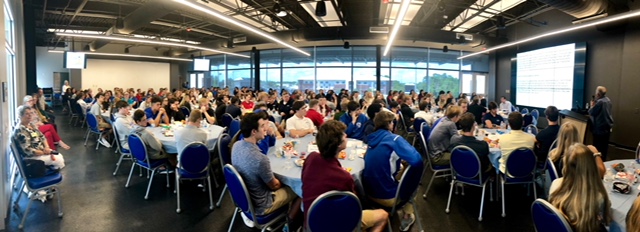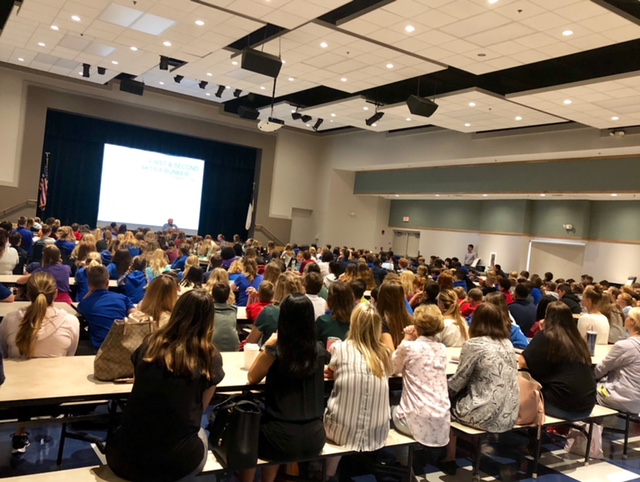History Doesn’t Repeat Itself, But It Does Rhyme


Mr. Max Weisglass captivated our students with the story of his life as a young Jewish boy in Poland during the Holocaust when he visited Lakeland Christian School last week. Teenagers leaned forward in their chairs as the Holocaust survivor described the compassion shown by a widow in town who took his family in, protecting them from certain death. They cringed as they heard of the horror of five days and nights of violence when the ghetto was liquidated by Nazi death squads. They asked questions about how he spent his time entombed in a bunker with his family and others twelve feet under a barn for ten months. They gained a concrete understanding of one man’s experience that will never be forgotten.


Why is it essential for students to know history—especially the history of World War 2? As we “educate students in the light of God’s Word to equip them for a lifetime of learning, leadership, service and worship” as our school mission statement promises, we recognize that some of the most pressing questions of the future are rooted in the past. The Holocaust was primarily about the Jewish experience of suffering at the hands of the Nazis, but cautionary tales in areas including technology and economics should call us to somber reflection.


Technology and the Future
Gene editing technology potentially enables the development of drought resistant crops and an end to genetic diseases, among a host of possibilities. Scientists are elated at the prospect of new gene therapies, but the technology may also result in designer babies and has made many bioethicists question just how far it should go, and how quickly. When just about anyone can edit DNA, questions about human dignity and valuing life “imago Dei”—in the image of God—are essential to wrestle with as a society.
Designer babies are not new. Eliminating perceived genetic weakness was the hallmark of the eugenics movement that took hold in Nazi Germany, but also in America. The American eugenics movement was even used by the Nazis to justify some of their actions. How might we help students rightly understand the future challenges of bioengineering? The answer is a grounding in the word of God and an understanding of the past, resulting in wisdom for the future.






Economic Freedom, Care, and Thriving
“We care for the least among us- the unborn, the elderly, the disabled – and show the world the amazing joy of finding true identity in the One who created and redeems us.”
Bill Brown, PhD, Senior Fellow for Worldview and Culture, The Colson Center
How might views of economics reveal the heart and shape the future? Socialism is rising, and students can be drawn to its rhetoric of care for others. It is essential to remember the lessons of the past as well as the present. How might we care for “the least of these”, preserve the dignity of all people, and encourage a culture of productive work?
Arthur Brooks of the American Enterprise Institute is an economist with a particular interest in reducing poverty. He says that since 1970, the number of people worldwide in extreme poverty has declined by eighty percent: “It was five things. It was globalization, free trade, property rights, rule of law, and entrepreneurship. It was the American free enterprise system that started spreading around the world that has pulled billions of people out of poverty for the first time in the history of mankind.”
In our own community, we see the ministries of Lighthouse Ministries, Gospel, Inc., Parker Street Ministries and so many others serving with a generosity of spirit, and we are called to join them. As we think about how to both encourage meaningful work and best support those who cannot care for themselves, we must remember the dark lessons of the past and the hope of the future. Far from a utilitarian Nazi ideology that measures only the value of what people can do, we must teach our children to honor all people for their intrinsic worth and dignity as image bearers of God.
– Viking View written by Jennifer Canady, M.A. – RISE Institute Director